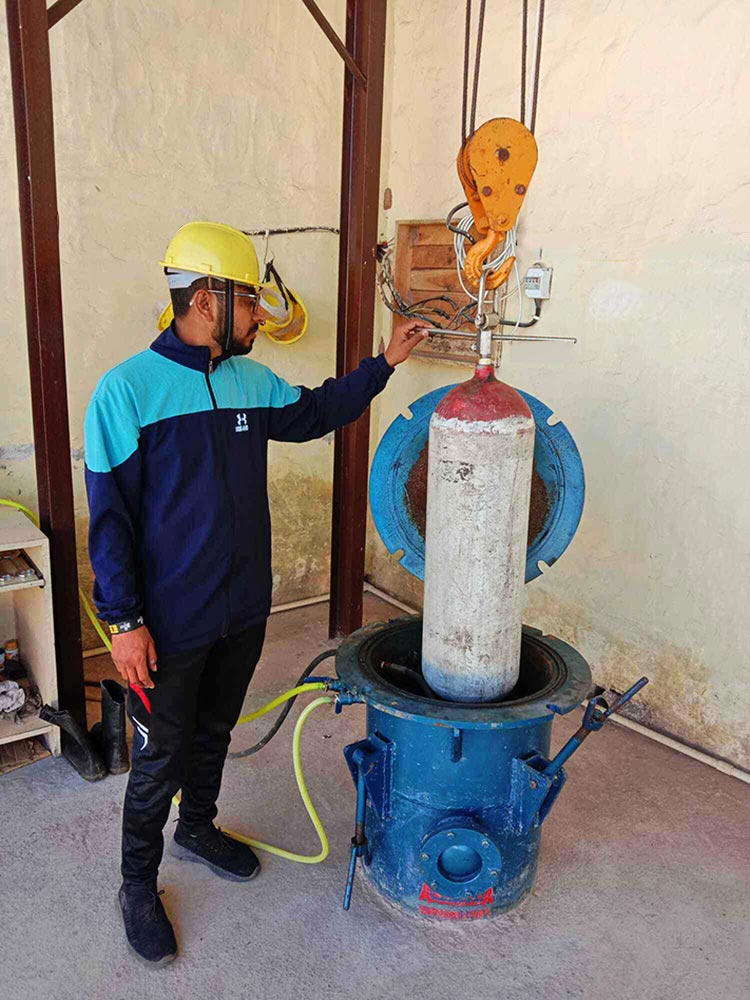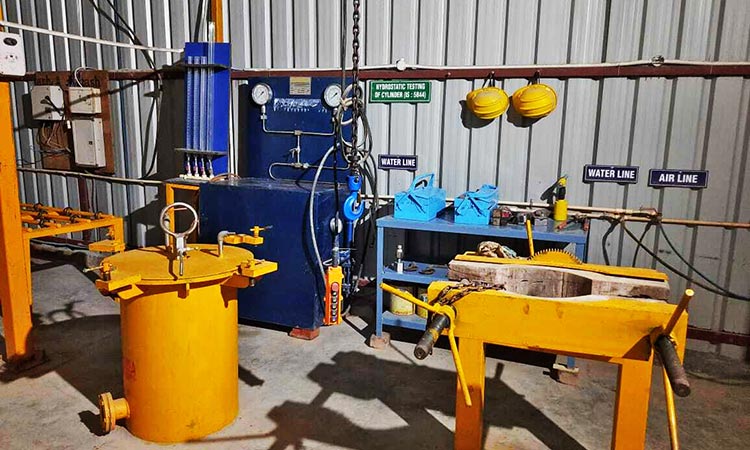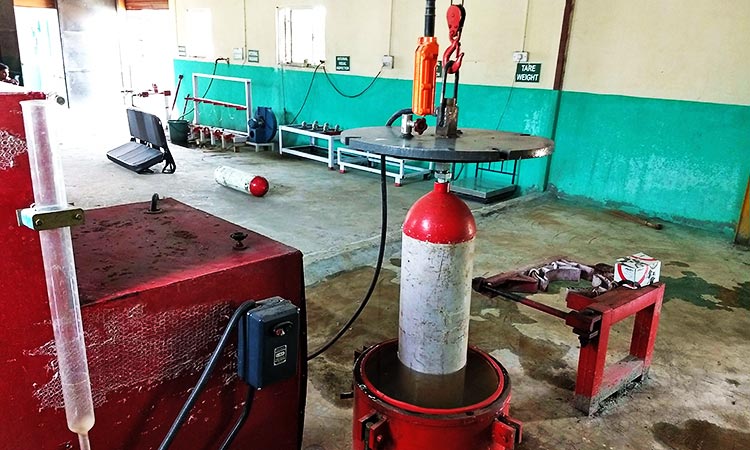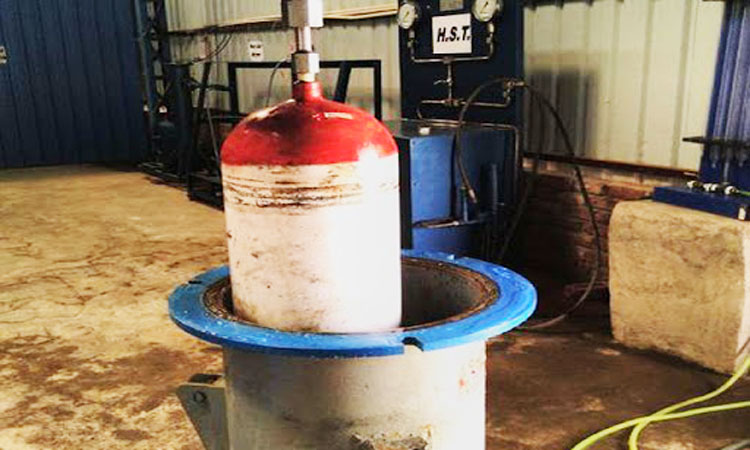CNG Cylinder Hydro Testing is affordable and highly recommended for CNG Fitted Vehicles. CNG Cylinder Testing is a crucial safety procedure that involves checking the structural integrity of CNG cylinders to ensure they can safely contain high-pressure natural gas. CNG Cylinder Testing is required for every CNG Kit Fitted Vehicle on a Regular interval of 3 year as per Government safety norms. We are Government Approved CNG Cylinder Testing Center in Delhi providing valid and advance level CNG Cylinder Testing Services for CNG, LNG, PNG, Oxygen and other high pressure cylinders.
Why Periodic CNG Cylinder Re-Testing is Required?
Purpose: The primary purpose of hydrostatic testing is to verify that a CNG cylinder can withstand the internal pressure it will be subjected to during normal operation without any signs of weakness or leakage.
Applicable Standards: The testing process typically follows national and international standards and regulations specific to CNG cylinders, such as those set by organizations like the Department of Transportation (DOT) in the United States or ISO (International Organization for Standardization) standards.
Frequency: CNG cylinders have a specified service life and need to be periodically hydrostatically tested to ensure safety. The frequency of testing is 3 years, depending on the cylinder type and usage.
Testing Procedure: The hydrostatic test involves filling the CNG cylinder with water or another incompressible fluid and pressurizing it to a predetermined level (usually 1.5 times the working pressure of the cylinder). The cylinder is then inspected for any signs of deformation, leakage, or other structural issues while under pressure.
Marking and Certification: If the cylinder passes the test and meets the required safety standards, it is typically marked with the test date, testing facility information, and other relevant information. Certification is often issued to document the successful test results.
Rejection and Requalification: If a cylinder fails the hydrostatic test due to any structural weakness or defects, it is taken out of service and must either be repaired or replaced, depending on local regulations. Requalification may involve additional testing and inspections.
Safety: Safety precautions are crucial during the testing process to prevent accidents or damage to the testing equipment. Experienced and trained personnel should conduct the tests in a controlled environment.
Record Keeping: Proper documentation of hydrostatic tests and cylinder maintenance is essential. This helps track the testing history of each cylinder, ensuring compliance with safety regulations.
Transportation and Storage: CNG cylinders that have passed hydrostatic testing can be safely used for the transportation and storage of compressed natural gas. It is then reinstalled in respective vehicle or on CNG Cascade.




